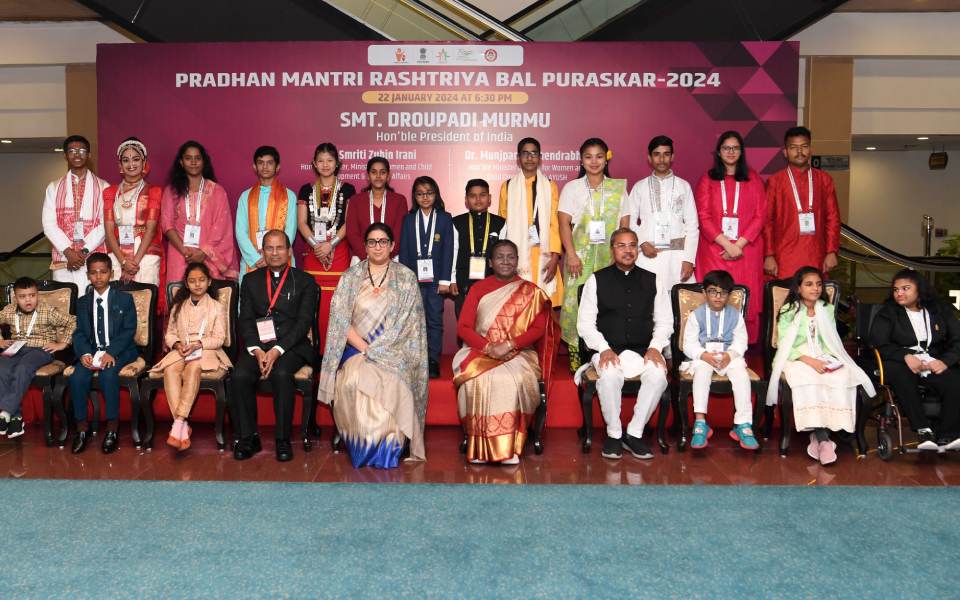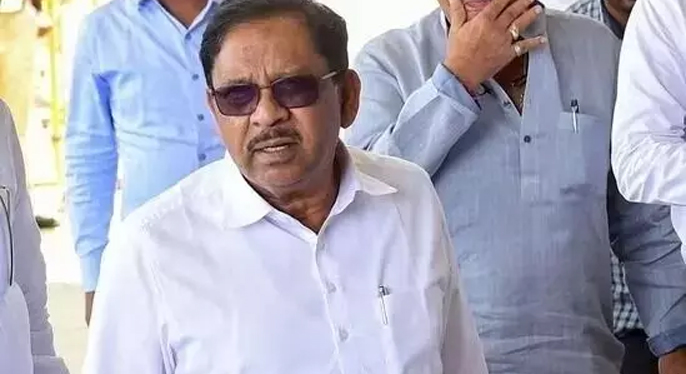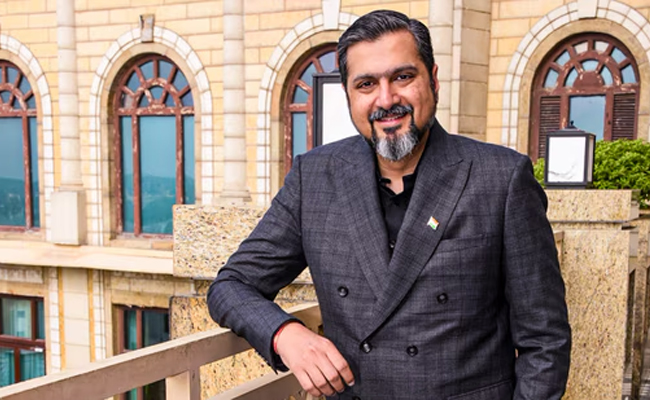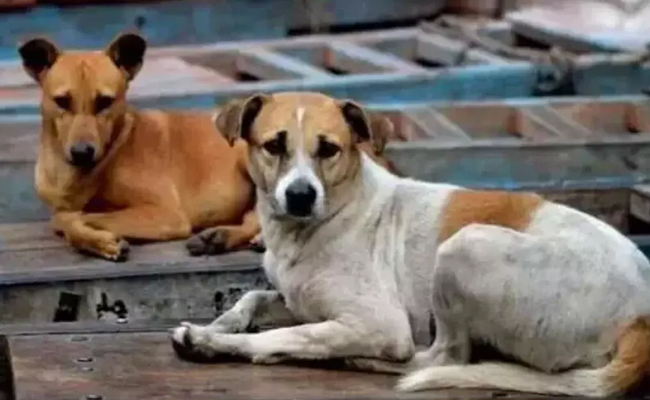New Delhi, Jan 22: A nine-year-old mountaineer, a young AI scientist, a specially abled painter and a 'Google boy' were among the 19 children who were conferred with the Pradhan Mantri Rashtriya Bal Puraskar 2024 on Monday.
President Droupadi Murmu presented the national awards to them for their exceptional achievements.
Among the winners is Aaditya Vijay Brahmane, 12, from Maharashtra, who was awarded posthumously for his extraordinary act of courage. He sacrificed his life to rescue his cousins Harsh and Shlok from drowning in a river while playing.
Aryan Singh, 17, from Rajasthan is another remarkable recipient of the award. Singh ingeniously developed an Agrobot, an artificial intelligence-powered robot aimed at simplifying the lives of farmers by integrating cutting-edge technologies such as the Internet of Things (IoT).
In Chhattisgarh, Armaan Ubhrani, also known as the 'Google boy', has earned the award for his outstanding prowess in mathematics and science.
At the tender age of six, Ubhrani has achieved numerous milestones, including becoming the youngest author of a book series and solving 100 multiplication sums, garnering recognition both nationally and internationally.
In the domain of art and culture, eight-year-old Anushka Pathak from Uttar Pradesh has established herself in 'Katha Vachan' (religious text narration). Following in her esteemed father's footsteps, Pathak has captivated audiences across 22 states with her performances, becoming a recognised figure in the spiritual realm.
Arijeet Banerjee, 13, from West Bengal, a prodigy in playing the traditional Pakhawaj, has made an indelible mark on the cultural landscape.
Having performed at prestigious events like the International Dhrupad Festival, Banerjee has received accolades such as the Bharat Ratna M S Subbulakshmi Fellowship and the Asia Book of Records.
Despite facing severe cerebral palsy, 13-year-old Hetvi Kantibhai Khimsuriya from Gujarat has displayed extraordinary artistic abilities, creating 250 works of free-hand painting, receiving numerous awards, and selflessly donating her monthly disability pension to support differently abled children.
Ishfaq Hamid, 12, from Jammu and Kashmir has become a maestro of Rabab and Matka, receiving accolades during various festivals and being honoured with the Bhai Mardana National Award in 2020.
Md Hussain, 16, from Bihar has excelled in handcrafted arts, winning accolades in state and national-level competitions, and even presenting his indigenous toys to Prime Minister Narendra Modi during the 'Pariksha Pe Charcha' programme.
Pendyala Laxmi Priya, 14, from Telangana is a Kuchipudi dancer, winning the Kala Utsav National Award 2023 in the classical dance category and holding titles like 'Laasyapriya'.
In the realm of innovation, 16-year-old Suhani Chauhan from Delhi has developed 'SO-APT', a solar-powered agriculture vehicle, offering an impressive solution for sustainable farming.
Despite obstacles associated with Down syndrome, nine-year-old Avnish Tiwari from Madhya Pradesh trekked Mount Everest base camp at the age of seven and received the Shresth Divyang Bal Puraskar in 2022 for his exceptional social service.
Nine-year-old Garima from Haryana, a visually impaired girl, is dedicated to providing education to underprivileged children through her initiative called 'Sakshar Pathshala'.
Jyotsna Aktar, 16, from Tripura challenges societal norms and actively fights against child marriage, advocating for education and empowering other girls in her community.
In the field of wildlife conservation, 15-year-old Saiyam Mazumder from Assam has become India's youngest snake rescuer and also cares for stray animals.
Aaditya Yadav, 12, from Uttar Pradesh is being awarded for his sports achievements. As a specially abled badminton player, Yadav has triumphed in numerous tournaments, including international championships, demonstrating resilience and excellence.
Charvi A, 9, from Karnataka, the Under-8 World Chess Champion, stands out among other awardees in the sports and games segment, securing multiple titles at both national and international levels.
Nine-year-old Jesicca Neyi Saring from Arunachal Pradesh is a highly skilled badminton champion, consistently achieving excellence in various categories.
Linthoi Chanambam, 17, from Manipur is the first Indian to clinch a judo championship in any age group, securing gold at the 2022 World Judo Cadets championship in Sarajevo.
R Surya Prasad, 9, from Andhra Pradesh, who commenced mountaineering training at the age of five, accomplished the feat of scaling Mount Kilimanjaro at the age of nine.
President Droupadi Murmu presented Pradhan Mantri Rashtriya Bal Puraskar. The President said that children and youth are the leaders of the future of our country. It is our duty to make them aware of Indian culture and life values along with providing them modern education.… pic.twitter.com/7NHovQslYz
— President of India (@rashtrapatibhvn) January 22, 2024
Let the Truth be known. If you read VB and like VB, please be a VB Supporter and Help us deliver the Truth to one and all.
Tumakuru (PTI): Karnataka Home Minister G Parameshwara on Saturday said his recent remarks on the demolition of properties linked to those involved in narcotics trade were "misunderstood and misinterpreted".
His clarification follows remarks made two days ago on the government's uncompromising crackdown on the drug menace, including action against properties linked to foreign nationals allegedly involved in drug trafficking.
"It is unfortunate. It is taken in the wrong sense. I didn't mean that tomorrow itself I am going to send bulldozers and demolish the houses. That was not my intention. It was wrongly taken," he told reporters here.
Responding to Congress MLC K Abdul Jabbar's question in the legislative council on the growing drug menace in Bengaluru, Davangere and coastal districts, the minister on Thursday detailed the extensive enforcement measures initiated since the Congress government assumed office.
Pointing to the involvement of some foreign nationals, the minister had said, "Many foreign students from African countries have come to Karnataka. They are into the drug business. We catch them and register cases against them, but they want the case to be registered because once the case is registered, we cannot deport them."
"We have gone to the extent of demolishing the rented building where they stay," he had said.





